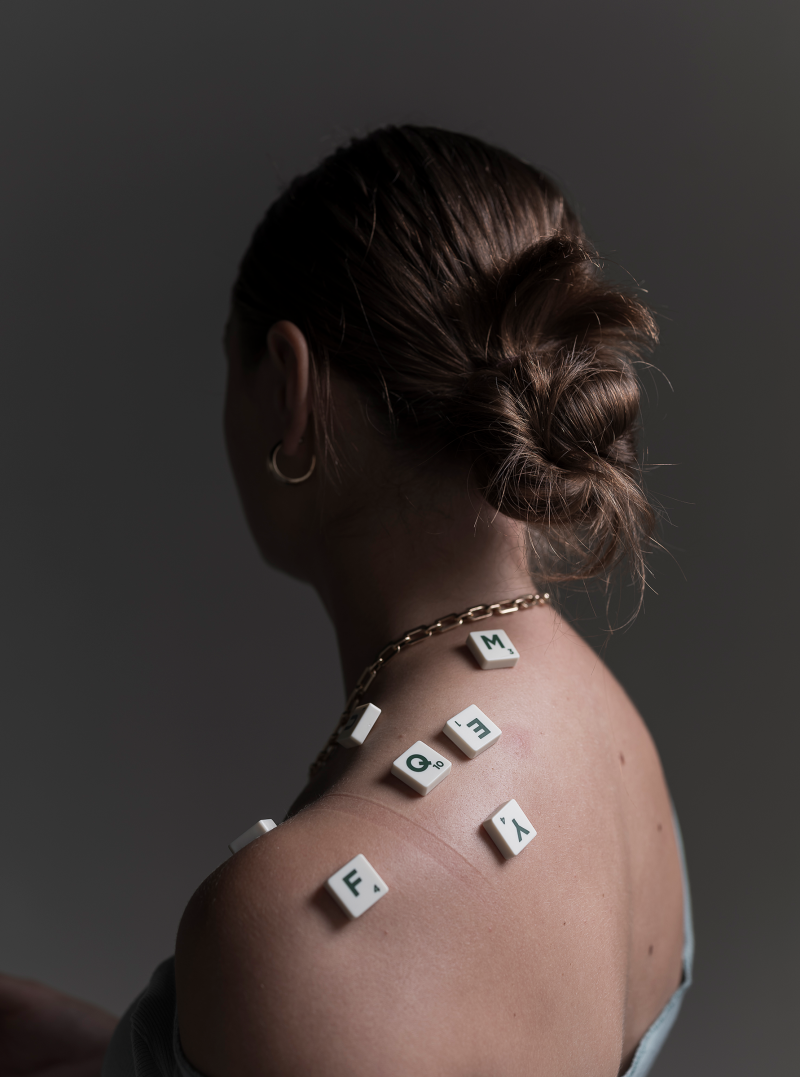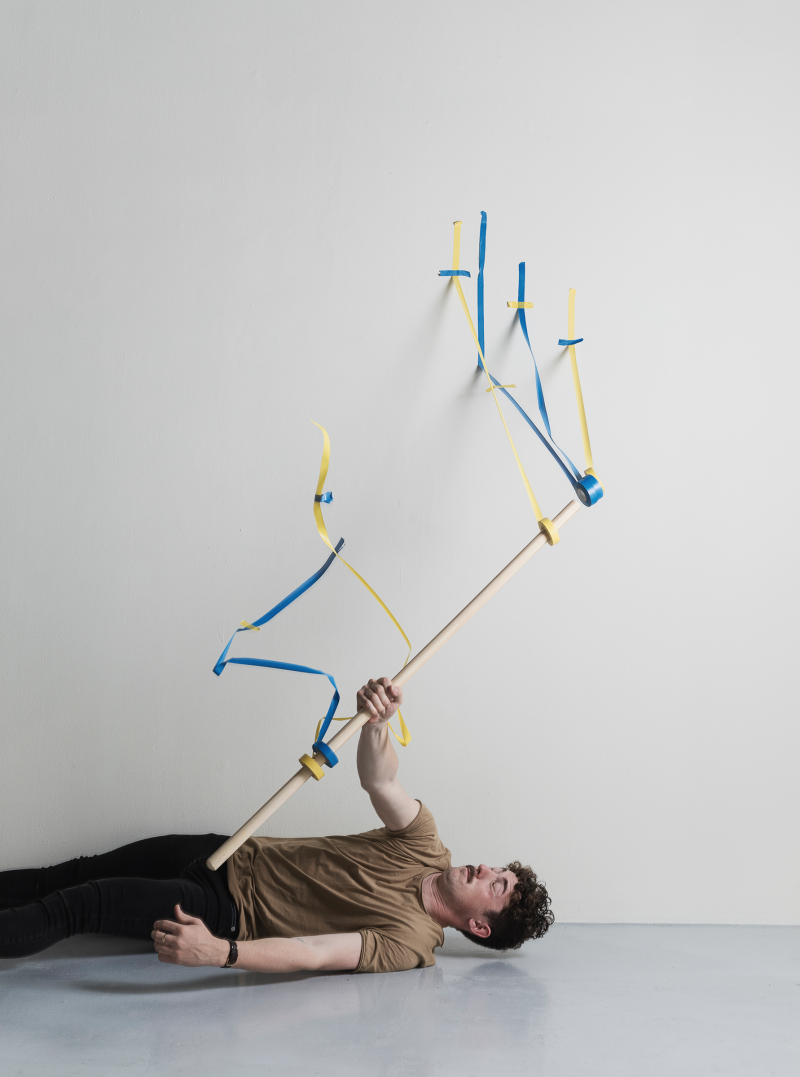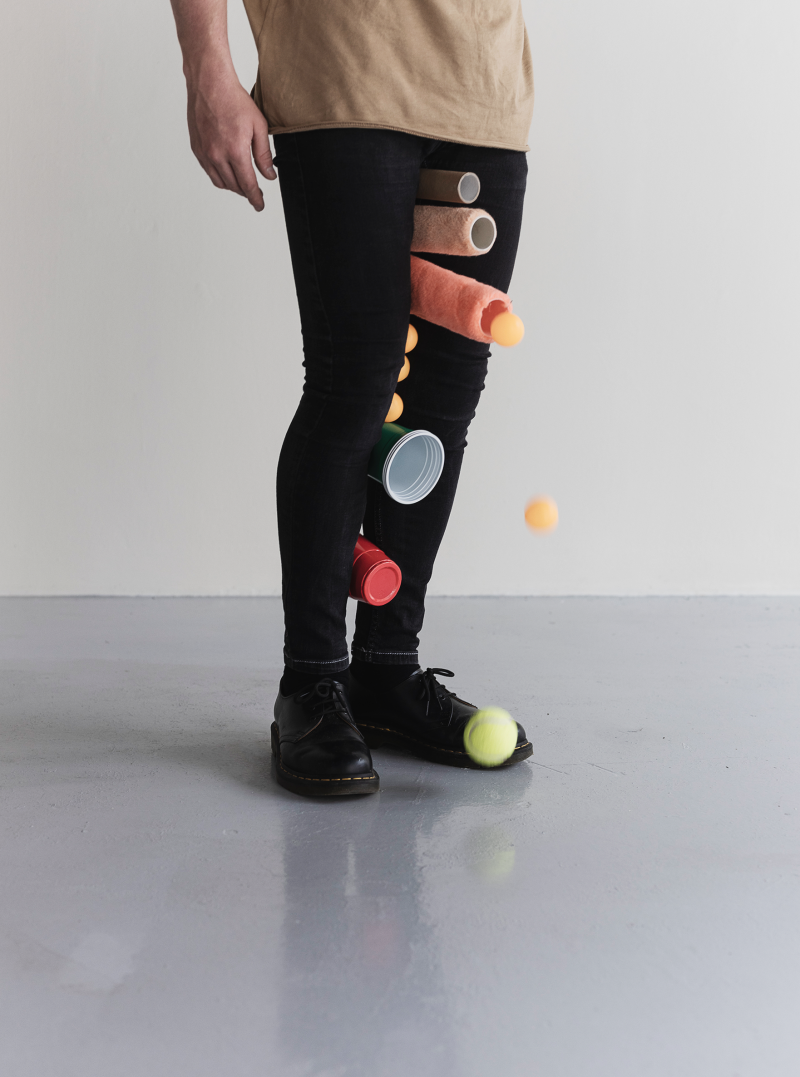































Here are some Frequently Asked Questions that cover most of the admissions process at NCAD. Need more information? Go to the web site Study-at-NCAD or just drop us a line, at admissions@ncad.ie and we will be happy to help.
How do I know if Art and Design College is right for me?
Only you can really answer this question, but perhaps we could give you some things to think about. Students of Art and/or Design tend to be critical thinkers, with a desire to improve the world in some way. They are the people who will better our society for generations to come. Everything you interact with on a daily basis was thought up, designed, made or improved by an artist or designer, for example: your phone, your clothes, the digital display at the bus stop/train station, the chair you sit on, the cup you drink from. Art and Design has such a far-reaching scope across all sections of society. If you have the ideas, studying Art and Design will give you the skill to make the world a better place.
If Art and Design College is right for me, why should I choose NCAD?
NCAD is the only dedicated Art and Design Third Level Institution in Ireland. We offer the widest range of courses, from Fashion Design to Interaction Design, from Visual Culture to Painting, from Education to Print, with so many other exciting options. Our teaching staff are highly regarded practicing Artists, Designers, Curators and Educators, so you will be learning from active practitioners in your specialist field. We support our students to be the best they can be in what they want to do. We encourage creativity and promote social awareness. From the moment you step inside the blue Archway of NCAD on your first day, you are a part of our long and illustrious history and we will support and help you to become an innovator, creator and critical thinker of the future.
What about my career after college?
There is a growing need globally for the skills of graduates from Design and Fine Art backgrounds. Creative thinkers and problem solvers are in increasing demand across all sectors, prompted by challenges and opportunities confronting society, culture and contemporary business. Have a look at our Alumni page for an idea of what some of our graduates have achieved.
NCAD Careers Advisory Service is available to all of our students. This service helps students to identify the skills they have gained at NCAD and provides information and advice on CV preparation as well as interview and presentation techniques.
What is a restricted course?
Restricted courses normally require additional assessment procedures, e.g. the submission of a portfolio.
All NCAD studio courses (excluding AD212 Product Design, AD215 Visual Culture, and AD222 Interaction Design) require the submission of a portfolio to gain entry onto the course. Restricted courses must be applied for through the CAO, by the deadline. Late applications will not be accepted. NCAD does not operate the Leaving Cert/CAO points scheme for programmes requiring a portfolio submission. Offers are made based on portfolio score to applicants who meet minimum academic entry requirements. To see our NCAD Portfolio Submission Guidelines, please follow this link.
Are all of the courses offered at NCAD restricted courses?
No. AD215 Visual Culture is not a studio based course and is not a restricted course. AD212 Product Design and AD222 Interaction Design do not require a portfolio and are not restricted courses.
It is possible to make a late application to a non-restricted course up to 1st May.
Applications to restricted courses must be made by the 1st of February.
Do I have to have studied Art in school or for the Leaving Cert in order to apply to NCAD?
No. Art as a Leaving Cert subject is not a requirement for applying to any course at NCAD. You must have 6 Leaving Cert subjects, 2 of which should be grade H5 or higher. These subjects should include English and Irish. You will, however, need to submit a portfolio of work to be considered for a course, except for AD212 Product Design, AD215 Visual Culture, and AD222 Interaction Design. Product Design and Interaction Design applicants may submit an optional portfolio to gain up to 200 points.
Who is the Awarding Body for Degrees from NCAD?
NCAD is a recognised college of UCD, a Constituent University of the National University of Ireland (NUI). All degrees being awarded to NCAD Graduates are awarded through the NUI.
Is there a minimum Age for Entry to NCAD?
The minimum age for admission to NCAD is 17 years by 15 January the year following entry.
What are the minimum entry requirements?
NCAD does not operate the Leaving Certificate/CAO points scheme for programmes requiring a portfolio submission. Offers are made based on a portfolio score to applicants who meet the minimum academic requirements. For students presenting a Leaving Certificate, you must have at least 6 subjects, two of which must be at level H5 or higher. Subjects that must be included in this are: English and Irish. Information on obtaining an Irish language exemption is set out on the NUI website, www.nui.ie.
For students presenting QQI/FETAC awards, you must have 5 distinctions, as part of the Full Award.
For students presenting A-Level/GCSE results, you must have A-Level Grade C+ in 2 NUI recognised subjects. (A/E or B/D is regarded as equivalent to 2 Grade Cs for this purpose). AND GCSE Grade C+ in 4 recognised subjects. (GCSE Advanced Level grades A to D, E or O are accepted as GCSE O Level pass grades). Subjects must include English.
Applied A-Levels are not recognised by the NUI for matriculation.
Applicants for AD212 Product Design and AD222 Interaction Design must meet the entry requirement in Maths or an accepted alternative in a Science or Technology subject.
*Please see www.nui.ie for a full list of recognised subjects.
What is the Irish Language Requirement?
If you are a student who is studying/have studied outside of Ireland and want to apply to NCAD, you do not have an Irish language requirement. If you are a Leaving Cert Student, Irish must be one of your subjects, unless you qualify for an exemption. Exemptions must be granted and available through your CAO application by NUI. Foundation Level Irish is not acceptable. Full details on minimum entry requirements (matriculation) and regulations concerning exemption from the subject Irish can be found at www.nui.ie.
What is the Maths Requirement?
Maths as a subject is a requirement for AD212 Product Design and AD222 Interaction Design. However, the Maths requirement can also be met by one of the following subjects at Grade H7 on a Higher Level Paper or O6 or higher on an Ordinary Level Paper: Applied Mathematics, Physics, Chemistry, Physics with Chemistry, Engineering, Construction Studies, Agricultural Science, Technical Drawing or Biology.
Do all programmes at NCAD require a portfolio submission?
A portfolio submission is required for most studio degrees at NCAD.
A portfolio is NOT required for AD212 Product Design and AD222 Interaction Design and are now optional for applicants to gain up to 200 points.
A portfolio is NOT required for AD215 Visual Culture. For information on submitting a portfolio to NCAD go to Portfolio Guidelines.
What is the NCAD Undergraduate Fee Schedule and Payment Policy 2025/26?
To view the NCAD Undergraduate Fee Schedule and Payment Policy 2025/26: please see the Fees Page on our website.
I am a UK national, will be classed as an EU Student?
The Irish and UK Government signed a memo of understanding on the Common Travel area between Ireland and the UK (May 2019). The MoU acknowledges the importance of education noting that “the CTA affords Irish and British citizens the right of access to all levels of education and training, and associated student support in each other’s State on terms no less favourable than those for citizens of that State.” This means that UK students are eligible for the same fee structures and grants as EU students in Ireland.
What do I have to pay?
There are two elements to the NCAD undergraduate fee:
What is the Tuition Fee?
Under the Higher Education Free Fees Initiative, the Irish Government pays the Tuition Fee for all eligible full-time, non-repeat undergraduate, EU/EEA/Swiss students who meet the following criteria:
EU-students who do not qualify for the Free Fees Initiative, as outlined above, have to pay the full EU-rate undergraduate tuition fee (this fee is set by the Department of Education and Skills each year). Students who are classified as non-EU students have to pay the International Fees rate.
What is the Student Contribution Charge?
The Student Contribution Charge must be paid by you, even if you qualify for the Free Fees Initiative.
EU students who do not qualify for the Free Fees Initiative must pay the full programme fee which includes the Student Contribution Charge.
Currently the Student Contribution Charge is paid by the Exchequer for students who qualify under the Higher Education Grants Scheme.
Students have the option of paying the Student Contribution Charge in two instalments, September and January.
Tax relief on the student contribution charge for second and subsequent children in Higher Education, is available through the tax system www.revenue.ie.
What about additional Costs for Materials and Equipment?
The Materials Levy is set and used by individual Departments to cover specialist materials/consumables used in studio-based learning environments. This levy is specific to particular disciplines, set at the discretion of each Department and used in the Departments. Not all Departments operate this levy.
Are there any grants available?
All new Higher Education Student Grants are administered through a single agency called SUSI (Student Universal Support Ireland). Applications are made online and students who wish to apply for a student grant are advised to start the process as early as possible. You can start the application process before you receive your CAO place offer and have confirmed your acceptance. To find out more about the student grant and eligibility criteria you should visit the following web sites www.studentfinance.ie or www.susi.ie.
Are there grants for students from Northern Ireland?
Students from Northern Ireland may apply for a higher education grant to Student Universal Support Ireland or for a student loan to the NI Student Loan Company. Please check each individual site for eligibility criteria.
Are there grants for students from England, Scotland and Wales?
Students from the UK who register at NCAD may apply for a higher education grant to Student Universal Support Ireland. Please check www.susi.ie for eligibility criteria.
Are there grants for overseas students?
Students from outside Ireland or the UK should obtain information on scholarships from the Ministry of Education and Science of their own country (or other appropriate state agency). Students who have not established residence in Ireland are not eligible for maintenance grants from Irish grant authorities.
NCAD’s full-time programmes are included on the register of approved programmes for non-EU/EEA/Swiss students access to employment (the Internationalisation Register of the Department of Education and Skills).
What are the entry requirements for International Students?
Students from outside Ireland who wish to apply to degree courses at NCAD must have an equivalent second-level educational standard to that required from applicants who obtained their second-level education in Ireland. Please find Agreed entry requirements criteria for EU/EFTA Applicants for 2026 Entry on the CAO website here.
For applicants outside of the EU/EFTA, we follow guidelines set by UCD Global regarding Minimum Entry Requirements. Please email admissions@ncad.ie for any questions regarding International Minimum Entry Requirements.
Applicants to Year 1 will be required to submit certified transcripts of their second-level examinations (with an official translation to English if necessary) if they are successful at the portfolio examination stage of the selection procedure.
Students from outside Ireland applying to Year 2 of courses must also submit certified transcripts of their third-level college examinations, together with two letters of recommendation from their college: one from either the Director of their college or their Head of Department and one from their course tutor. In the case of applicants to Year 2 these documents should be enclosed with the completed application form.
What is the English Language Requirement?
Programmes are taught through English in the National College of Art and Design, therefore all applicants are required to demonstrate a high level of competence in English language. Applicants who have not passed English as a subject in the Irish Leaving Certificate Examination must provide evidence of equivalent competence in English language through their school leaving examination or matriculation examination or by achieving the minimum standard in a recognised English language test. Full details of acceptable tests and the standard required can be found at the following link.
When is the deadline for International Students to apply to NCAD?
International (non-EU) applicants to First Year must apply by the 1st of February 2026 by 5:00PM through NCAD directly.
What night time or part time courses do you offer?
CEAD, the Centre for Continuing Education in Art & Design at NCAD, provides part-time courses in art and design for adults and school-leavers who wish to explore their creative potential and learn new skills.
CEAD at NCAD provides opportunities for learning during the autumn and summer to over five hundred students each year. CEAD offers certificate and non-certificate options for students who choose to study part-time in an era of lifelong learning. CEAD aims to provide a diverse programme of courses, offering flexible, quality learning opportunities that enable access, support progression and transfer for students who wish to further their visual arts education. To see a full list of the courses available through CEAD please visit our website Continuing Education.

